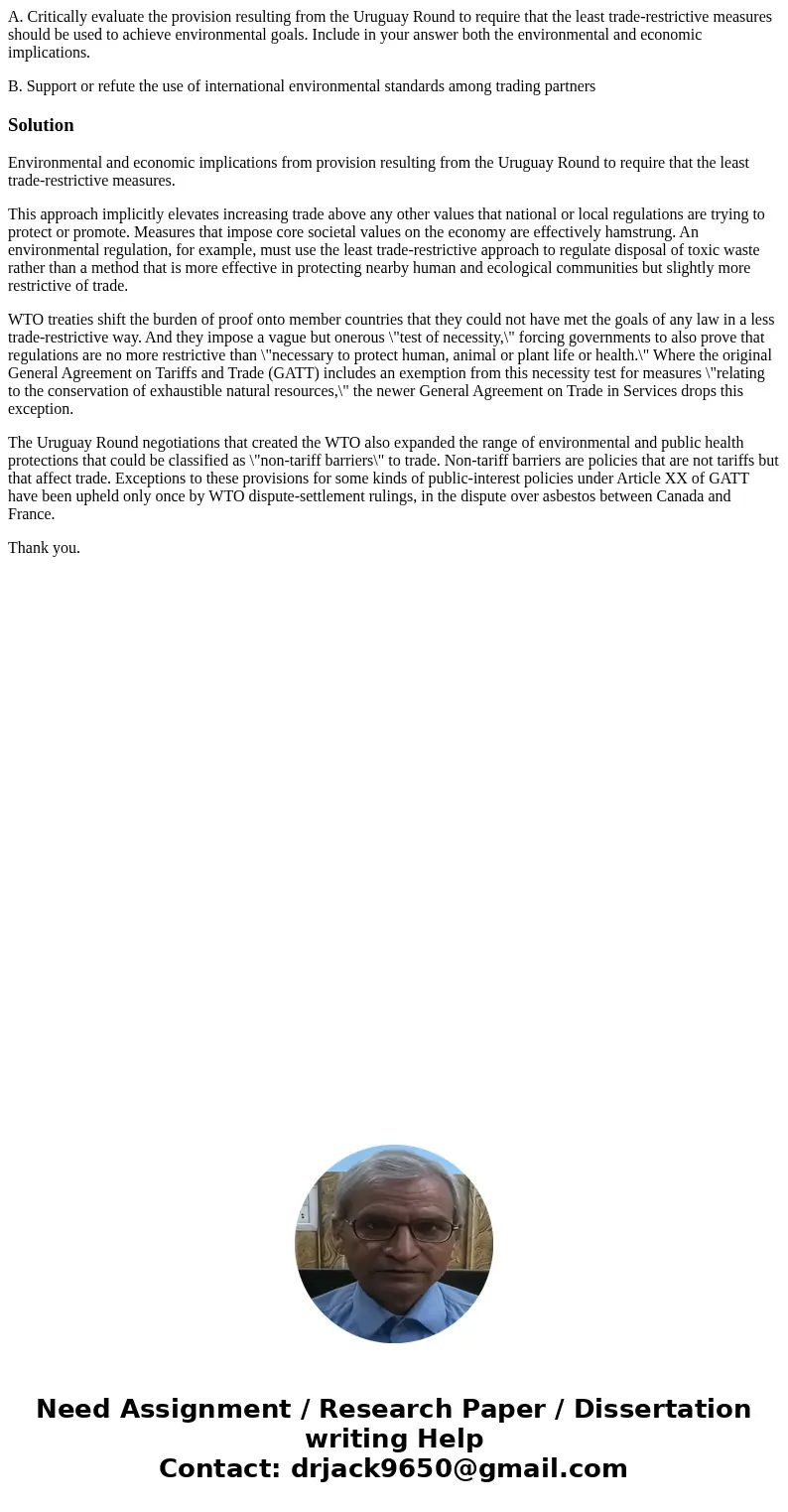A Critically evaluate the provision resulting from the Urugu
A. Critically evaluate the provision resulting from the Uruguay Round to require that the least trade-restrictive measures should be used to achieve environmental goals. Include in your answer both the environmental and economic implications.
B. Support or refute the use of international environmental standards among trading partners
Solution
Environmental and economic implications from provision resulting from the Uruguay Round to require that the least trade-restrictive measures.
This approach implicitly elevates increasing trade above any other values that national or local regulations are trying to protect or promote. Measures that impose core societal values on the economy are effectively hamstrung. An environmental regulation, for example, must use the least trade-restrictive approach to regulate disposal of toxic waste rather than a method that is more effective in protecting nearby human and ecological communities but slightly more restrictive of trade.
WTO treaties shift the burden of proof onto member countries that they could not have met the goals of any law in a less trade-restrictive way. And they impose a vague but onerous \"test of necessity,\" forcing governments to also prove that regulations are no more restrictive than \"necessary to protect human, animal or plant life or health.\" Where the original General Agreement on Tariffs and Trade (GATT) includes an exemption from this necessity test for measures \"relating to the conservation of exhaustible natural resources,\" the newer General Agreement on Trade in Services drops this exception.
The Uruguay Round negotiations that created the WTO also expanded the range of environmental and public health protections that could be classified as \"non-tariff barriers\" to trade. Non-tariff barriers are policies that are not tariffs but that affect trade. Exceptions to these provisions for some kinds of public-interest policies under Article XX of GATT have been upheld only once by WTO dispute-settlement rulings, in the dispute over asbestos between Canada and France.
Thank you.

 Homework Sourse
Homework Sourse